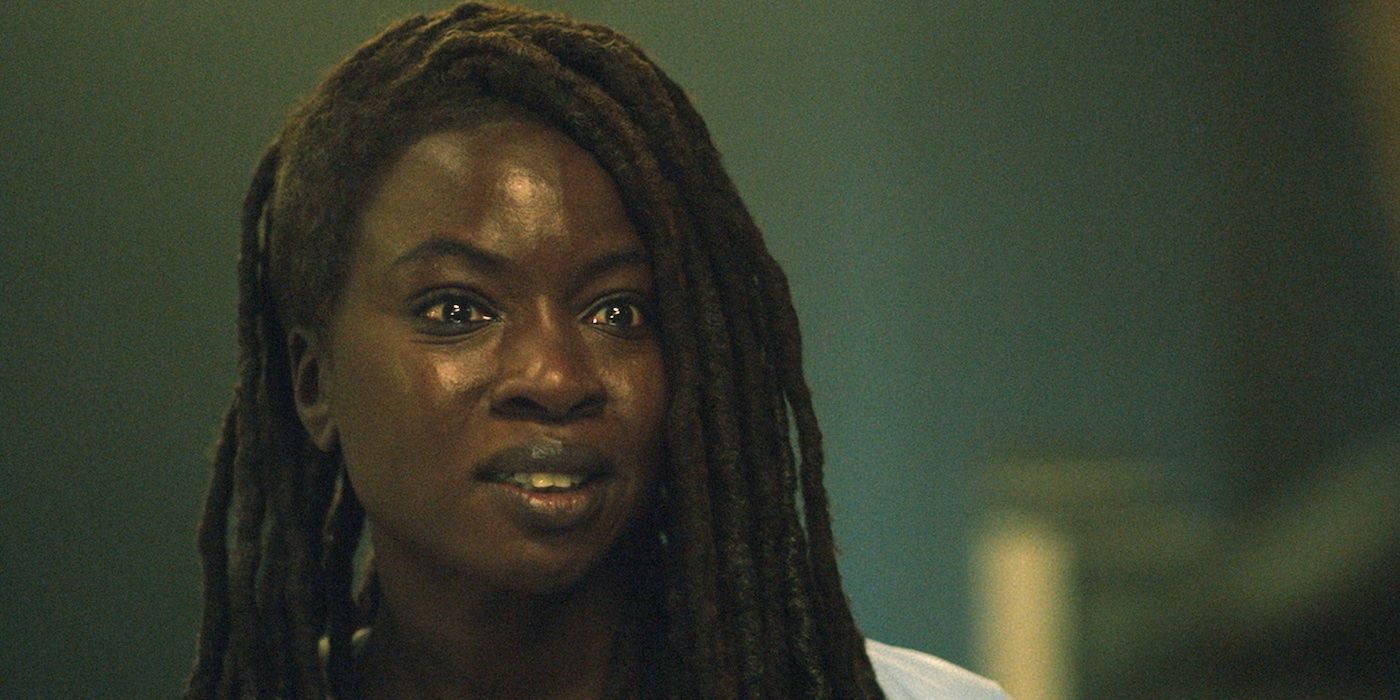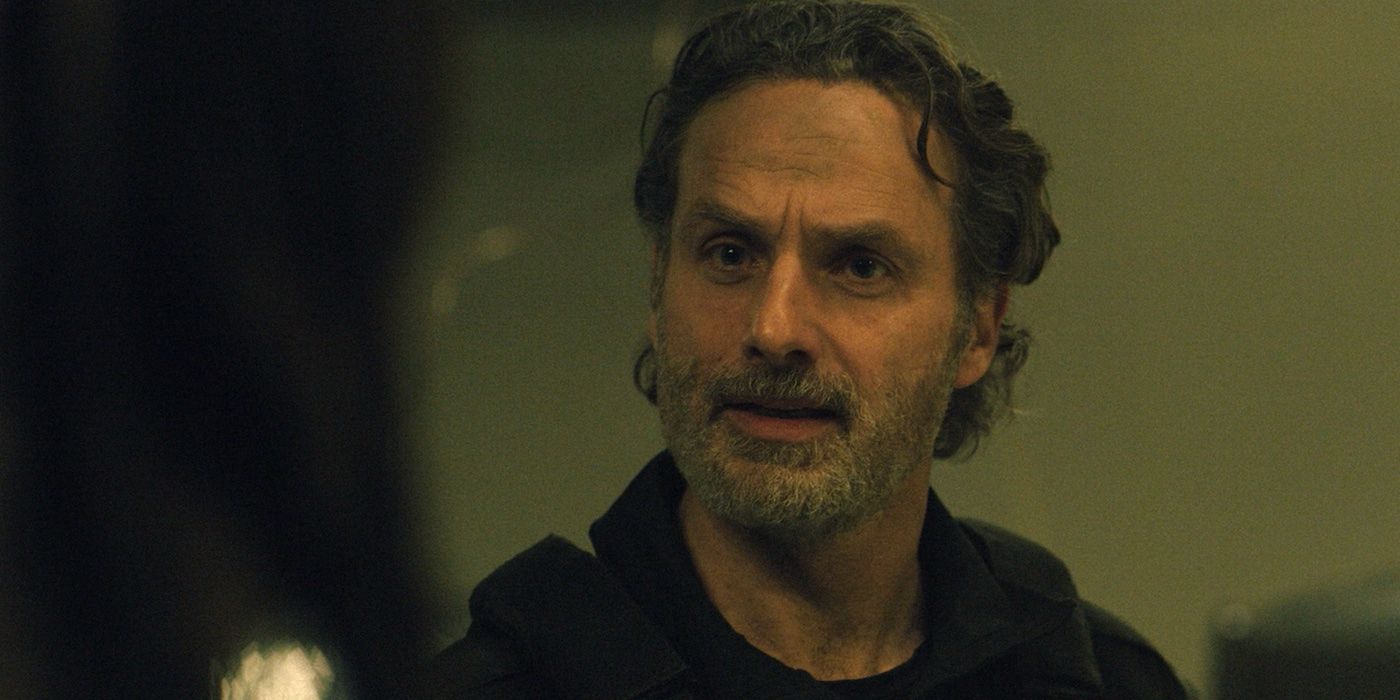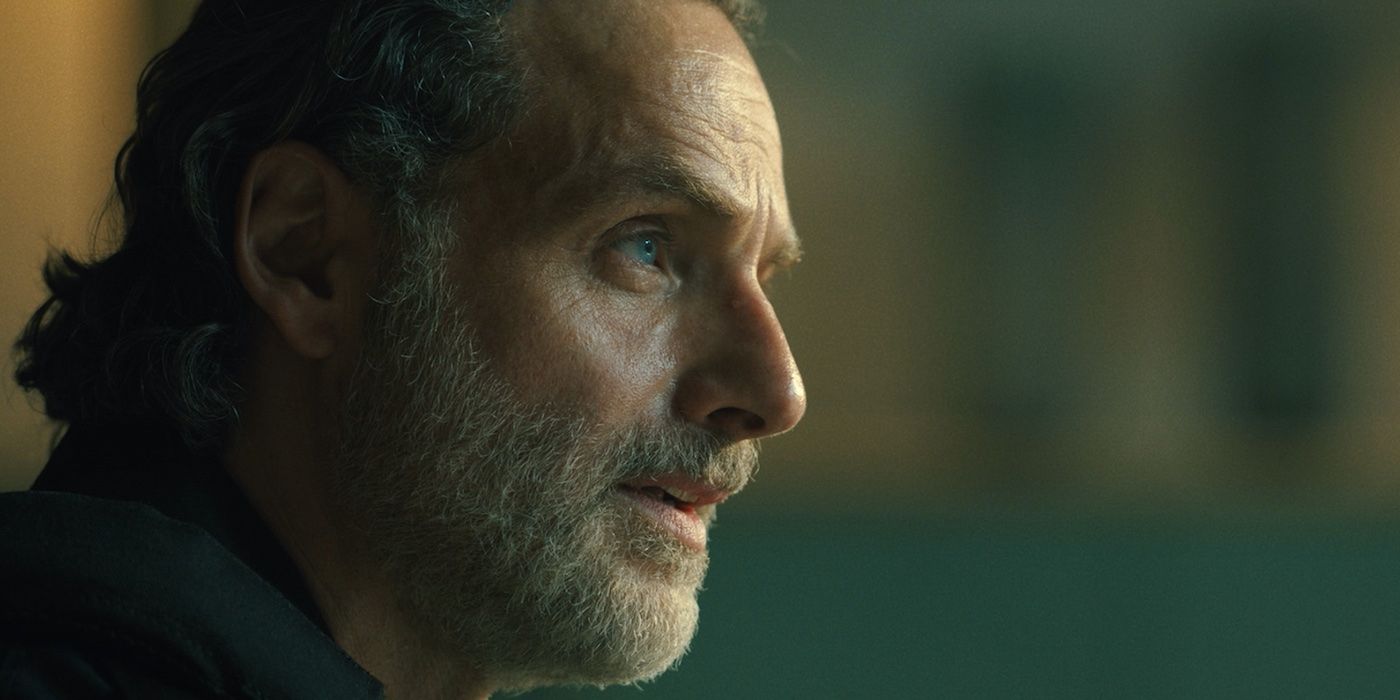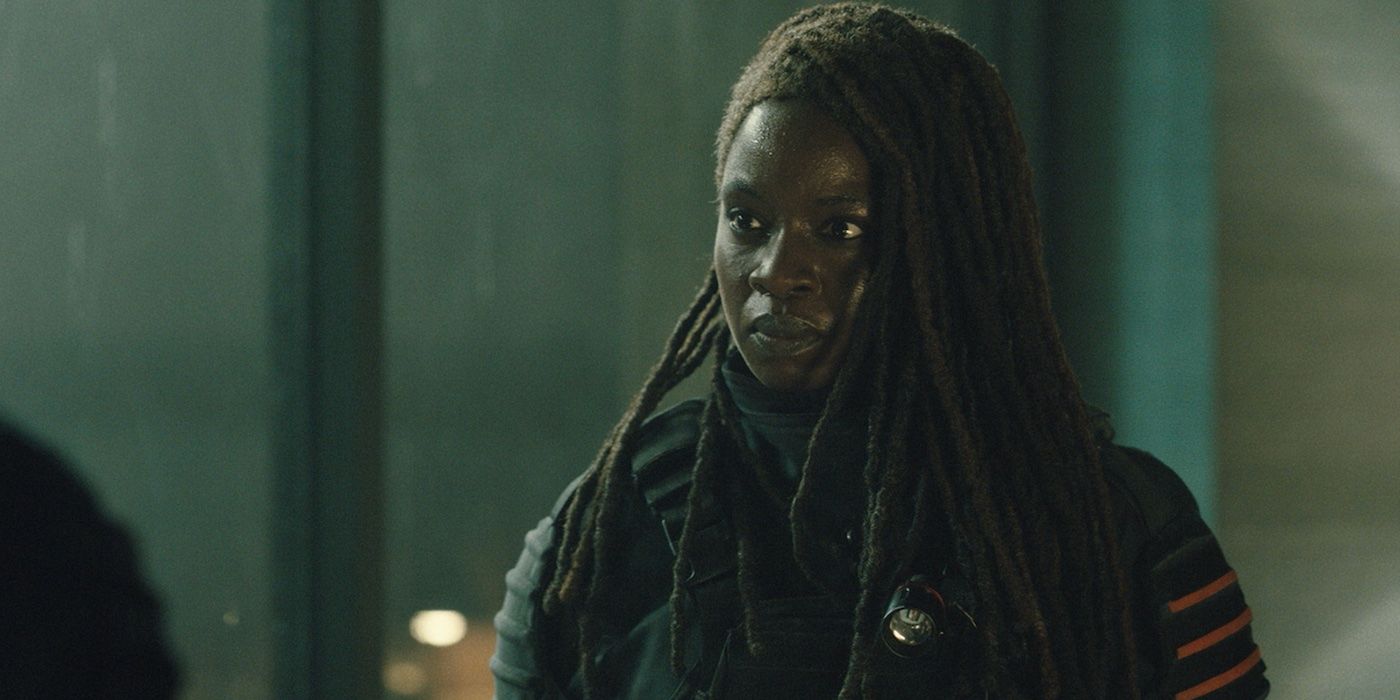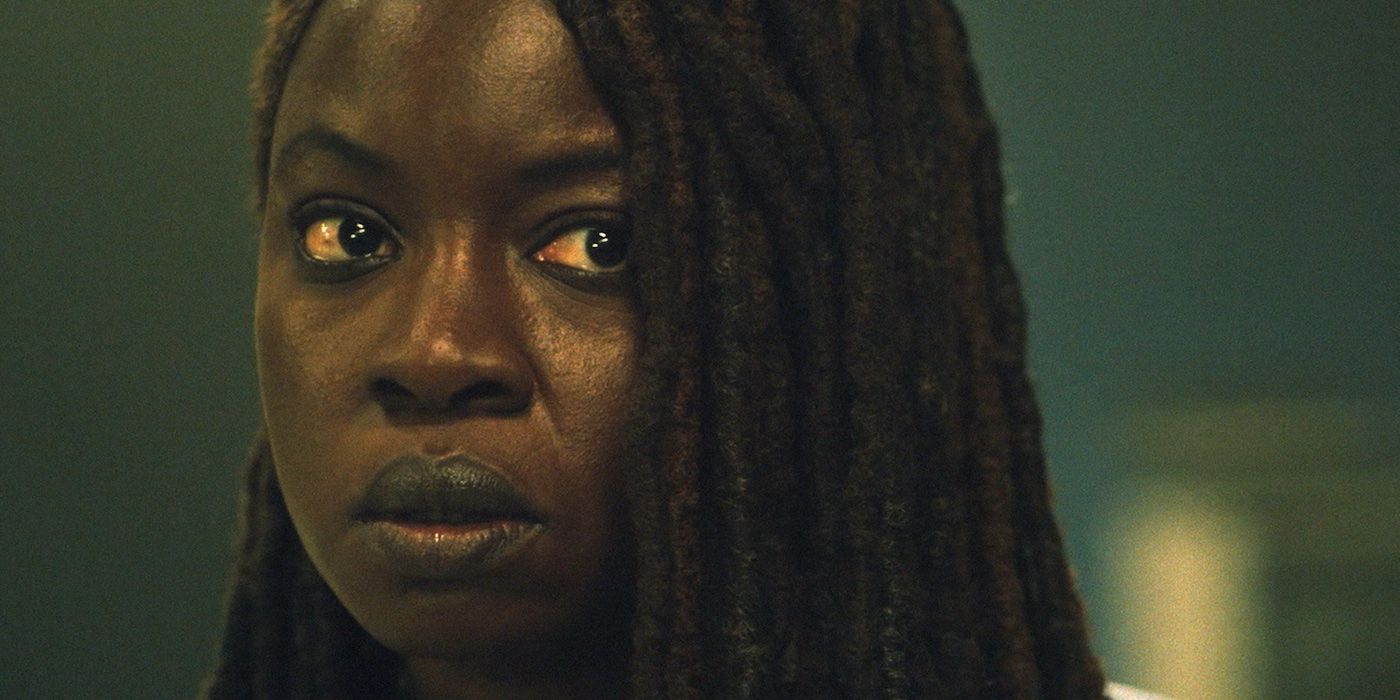In an interview with CBR, The Ones Who Live star Danai Gurira breaks down how she wrote Episode 4 and getting to the root of Rick Grimes’ trauma.
Plenty of characters came and went in The Walking Dead universe, but only a few remained for over a decade. What’s more, not many characters have the privilege of leading their own hit spin-off that proved franchise fatigue doesn’t apply to every cinematic universe. Michonne, played by the magnetic Danai Gurira, was a star even before she appeared in the original show’s second season finale. Her counterpart in the comics of the same name was one of the most iconic characters in zombie media. Gurira only heightened the comics’ character with her alluring interpretation of Michonne. Several years later, Gurira returned to The Walking Dead in the spin-off The Ones Who Live, co-led with Andrew Lincoln as Rick Grimes. Here, she got the chance to give her most famous character a proper send-off, and even write the fourth episode herself.
While Michonne hasn’t changed that much since viewers last saw her in The Walking Dead Season 10, Rick has become an entirely different person. Michonne isn’t oblivious to the fact that the Civic Republic Military (CRM) changed her husband for the worse, so she takes matters into her own hands. Now away from the CRM, the episode “What We” slows down and keeps the story contained, as Michonne digs deep into Rick’s psyche to give him another chance at life. When talking to CBR, Gurira discussed the extensive research she conducted to do justice to Rick’s psychological trauma, and how the intimate scenes of “What We” played a crucial role in reconnecting Michonne and Rick’s love for each other.
CBR: The structure of this episode is unique in that it only features two characters in one setting, which many people now associate with a bottle episode, but I wouldn’t necessarily call “What We” that. Nonetheless, sometimes these kinds of episodes follow a similar rhythm because they only have two characters to work with. What were you keen on capturing in this episode to avoid falling into a rut?
Danai Gurira: I was excited about this episode because I’m a playwright. For me, that’s always the challenge. That’s 101 of playwriting. If you’re a playwright worth your salt, you know how to keep the ball in the air. If you don’t know how to keep a ball in the air with a two-hander, then I don’t know what you’re doing. You know? You might as well go write TV. I’m kidding. [Laughs] That’s the joy of writing a play. The setting has to become a character in itself. How do you turn something that’s not alive? How do you make it something that is essential?
The idea of this setting that I loved was that it destructs at the end. It served its purpose. It was there when Rick and Michonne needed their time-out and to [figure out] what the hell was going on between them without the CRM and all those compadres therein. We have got to get away from that. And we’ve got to figure out what is going on between the two of these people. They have to grapple with each other, their wounds, the past, the present and the future. It’s almost like the space was a cocoon that was designed for them to find that change or to find that new place for themselves, whatever it was going to be. And then once they do find it, it falls to dust. The building’s purpose is done. So that’s the metaphorical playwright-y way of looking at it. I don’t know what other things I’m avoiding, but for me, that’s the salt of being a writer. You keep the ball in the air, and you make everything have its purpose.
Being a playwright, did you kind of have to reprogram your writing skills to fit the television medium, or did you not have to change that much at all?
No, because I’ve been writing and developing teleplays for years now. I’m not new to the format of writing teleplays. At the core of what I’ve written in the past and the initial realm in which I’ve been writing in initially, of course, comes from the theater.
From the first draft, what were the plot points or details you knew you wanted to hit?
It was very clear that, firstly, they have to get together at the end. Secondly, there’s a grappling connected issue of, “Do [Rick and Michonne] break up?” They don’t know where the relationship’s going to end up. Michonne gives up and leaves, and it looks like it’s over [between them]. Then the situation around them shifts them into another place. Then it’s about whether they can heal and getting them to the point where they can actually reconcile. It’s the idea of how they are functioning not being together, even in how they fight and how they grapple with the enemy — in this case, walkers and a crumbling building. Then it’s how they grapple with things once they are healed and reconciled as a team again, which is a very formidable team. It was those points that had to be hit. Then, of course, how we get through the Rick trauma. The Rick issue was a big thing. I had to figure out what truly explains what’s been going on with him. You can totally go into, “Oh, it’s because the CRM is going to kill-” Yeah, yeah, yeah. But this is a man who grapples with whatever enemy he has to. What is really going on here that will be truly gratifying to us emotionally after seeing how he’s been trying to push her away and how he’s shifted? That was a big thing I had to figure out.
In doing so, Rick brings up his son Carl, which turns into this incredibly moving performance by Andrew Lincoln. Can you talk about why you chose to reference Carl in this manner?
It’s very much at the core of what we call a very basic thing in writing: the expected surprise. Of course, there’s something that is wounded in Rick that has really frightened him about this experience. It’s trauma. I had to research a lot about PTSD (post-traumatic stress disorder), people who come back from war and what that journey is. I mapped that out for Andy [Lincoln] and [The Walking Dead showrunner] Scott M. Gimple. That’s what’s at the core of what I’m trying to allow Rick to experience. That loss and trauma is what can cause behaviors that make no sense. What would be at that core for someone who loved Carl the way Rick loved Carl? His boy, his son. Rick lost Carl, and then to lose him again [in his dreams] because this place is taking so much from him… it’s like losing his humanity. It’s losing himself. Of course, that would be at the core of what’s shifted Rick.
It came from the idea that this man was going through trauma. What would be the thing that would totally destabilize him? It was losing Carl, but also losing Michonne as well. He figured out how to just be dead and function, and now she’s bringing Rick back to life. She’s bringing him back to his connections, history, his joy and all the beautiful things about life. But what if he loses her again? Then he doesn’t know how to go back to being dead. It’s a fear of the pain and the trauma once again. That journey was the underbelly of what was really going on. You can talk all day about how the CRM is going to hurt [Rick’s loved ones], but it’s something deeper than that. That’s what I found as I dug into it.
Before this episode, I had initially interpreted that the CRM psychologically conditioned Rick to believe he didn’t deserve a good life.

Yes, that was the central problem of the show and the storyline. How do you explain Rick’s behavior? He’s not programmed, or is he? He’s not — he’s traumatized. How do you get the audience to see that? Initially, we wanted that scene where Michonne finally leaves to make it seem like he’s programmed. But then, in the moment of intimacy between them, he opens up more and more. He’s fighting it, but he’s opening up because of his love for her. That’s why the love-making scene can’t just be a love-making scene. It had to be a scene that involves a shift of character. A shift of vulnerability. The trauma is manifesting in his body. That is where she gets to see something is going on here that she didn’t consider. That changes her entire approach to how to help him heal. That’s what the whole next journey in their bed is. She had to get him there, but she wouldn’t know how to if she hadn’t seen that moment during their love-making where he’s just suddenly out of it in such a state of trauma and fear.
So you were talking about the CRM programming. It was all about showing that it’s not the CRM. It’s the fear and the pain of losing these people again. If Rick was going to be traumatized to the point of functioning like the CRM, it would be because of the fear of losing his family. He loves his family that much. That’s where the epic love story is able to really manifest itself. He’s almost saying, “You can’t just come back into my life and make me come alive again. What if I lose you again? Then I don’t know how to die again.” It’s very faulty thinking, but it makes sense emotionally. It makes sense in trauma. That’s what trauma does to you.
